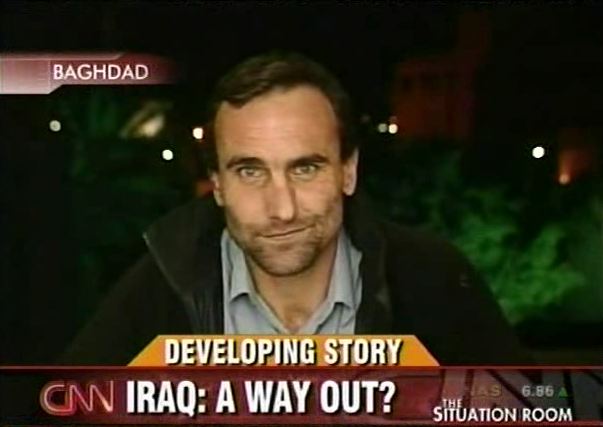TSR: "America needs to make a reassessment."

Click photo to play
Length: 3:25
JOHN KING: While Americans look for a way out of Iraq, Iran has its foot firmly in the door and is muscling its way more into the picture. Now Iran has invited the leader of Iraq to a weekend meeting. Correspondent Michael Ware joins us now from Baghdad.
Michael, Iraq's president, Mr. Talabani is going to Tehran. Do you expect any significant, tangible results from that, especially when it comes to improving the security situation?
MICHAEL WARE, CNN CORRESPONDENT: Well, there's no specific agenda we have been told of. No one has an expectation of the delivery of any immediate prize by President Talabani.
However, from an American perspective, key among the list of things to discuss will be security. Indeed, U.S. intelligence and the American ambassador here, and the American commander on the ground here, have all repeatedly accused Iran of sending money, fighters, training, and weapons across the border.
We are seeing, essentially, Iran -- through its surrogates -- killing American and British troops. They are also supporting the major militias, which are the fundamental building blocks of the government that President Talabani represents.
These countries share a land border. They fought a long and bitter war. There is much for them to discuss. But foremost will be security. Now, Iran has also offered to help with the rebuilding of the Iraqi army and the Iraqi intelligence service. America does not want that to happen. We'll see if that comes up in President Talabani's discussions.
KING: And Michael, I want to bring your attention to policy debate here in the United States. A number of competing proposals being kicked around as to what the United States should do to change its strategy. Almost every one of them says they have to do a better job after three and half plus years in Iraq of finding a way to improve the training of Iraqi security forces. Is any progress being made while the politicians and others back here in Washington debate what to do next?
WARE: No, not really, John. I mean, you only have so much to work with here in Iraq. And as we know, most of the security forces -- particularly the police and the national police, the former commando paramilitary units -- are heavily infiltrated by the Shia militias. That's why we're seeing in Sunni areas to the west, police being recruited locally because Sunnis simply cannot trust their own men in uniform if they come from the central government.
There's really very little here for the Americans to work with. We have seen an entire brigade of Iraqi national police taken off-line because of its complicity in death squad activity. That unit is now undergoing further training.
But overall, essentially, America needs to accept it has not been winning this war so far. In fact, its enemies, Al Qaeda and Iran, have been emboldened by this war. America needs to make a reassessment.
Firstly, of what is it trying to achieve. Any concept of establishing a bristling, shiny new democracy for the Middle East has to be cast aside. America needs to downscale its goals and that will help reshape what strategy it applies and how many forces that's going to need and for how long. Essentially, America needs to accept it is not going get what it set out to do -- John.
KING: Correspondent Michael Ware for us in Baghdad. Michael, thank you very much.
WARE: Thank you, John.
